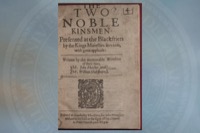 Anne Curry’s interesting, commendably accessible, and admirably well researched book commemorates this autumn’s 600th anniversary and is very good at sorting fact from fiction. She begins by piecing together what actually happened when Henry V led a smallish English army against a large French one in an expansionist bid to seize France. She uses a number of contemporary or near-contemporary accounts.
Anne Curry’s interesting, commendably accessible, and admirably well researched book commemorates this autumn’s 600th anniversary and is very good at sorting fact from fiction. She begins by piecing together what actually happened when Henry V led a smallish English army against a large French one in an expansionist bid to seize France. She uses a number of contemporary or near-contemporary accounts.
Yes, Henry really was a charismatic orator well able to whip up the morale of his men. Yes, the sky was, at one point, dark with a shower of English arrows. Yes, he named the battle after a nearby castle. And he most definitely gave an order to kill the French prisoners. Shakespeare included that, of course. Olivier omitted it. The last thing Britain needed in 1944 after five years of war with Germany was a film about an English leader with ambivalent morality.


